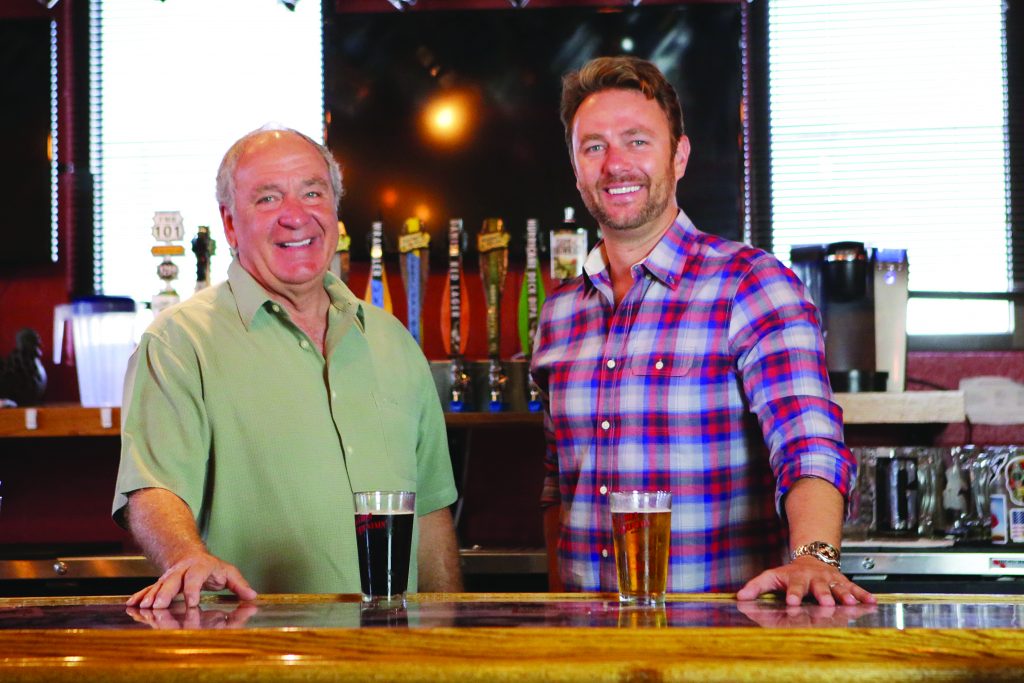Dreams from my father: Fig Mountain navigates pandemic and stays true to roots

Editor’s note: This story is the final in a series meant to celebrate the 20th anniversary of the Spirit of Small Business Awards, presented by the Business Times and the Small Business Administration. This story features a previous Spirit of Small Business winner.
As a little boy in Los Olivos, Jaime Dietenhofer beamed each day he jumped into his father’s truck, setting out together to turn trash into treasure.
They made their rounds of medical offices and printers, collecting silver waste from x-rays, lithographic films and microfiche. His father had invented a simple device for collecting the waste before it went down the drain, solving a problem businesses encountered from tightened environmental regulations.
His father then realized he could melt the silver into bars for resale.
“The crazy thing is they actually paid him to take it away,” Jaime says. “He was a consummate salesperson, learning what people needed, identifying the problem and turning that into something that could be profitable.”
His father added e-waste collection, soon discovering it, too, contained significant amounts of precious metals, and became a large-scale recycler of the metals in Ventura and Los Angeles counties.
“That was exciting, to see how that could expand from just one thing all the way through,” says Jaime. “He definitely gave me the experience and the addiction for entrepreneurial activities.”
So, years later when Jaime left his career in Los Angeles pimping out garages on the DIY cable network to fulfill his high school dream of opening his own craft beer brewery in Los Olivos, “I brought my dad out of retirement (so I could)…do this…with …my best friend,” Jamie says.
As Jamie tells it, the Dietenhofers grew Figueroa Mountain Brewing Co. into the largest beer brewer in Santa Barbara County, and probably Ventura County, both wholesaling and with their own retail locations, which today are in Santa Barbara’s Funk Zone, Westlake Village, Buellton and Los Olivos.
But then, in 2019, Jamie’s father died of cancer.
Jaime says he took solace in his father having lived a full, joyful life. But Jamie was on his own months later when Covid slammed the beer industry.
Mandatory tap room closures killed many craft California breweries that were retail only.
“A lot of businesses were hit really hard, especially the small brewers,” says Jeff Guittar, a
spokesman for the Beer Association, a national trade group, with many having closed.
But Jamie’s diversification paid off. His supermarket wholesale business surged to an all-time high, as customers shifted to chain retailers and drinking at home under quarantine.
Still, he wasn’t out of the woods with the end of the lockdown.
“2022 presented small brewers with a number of challenges, including rising operating and material costs and increasing competition, particularly in distribution,” Bart Watson, chief economist for the Brewers Association, a trade group for small and independent U.S. craft brewers, said in a statement. “In this maturing and competitive market, collective growth for the category is hard to come by.”
Jamie puzzled how to respond to inflating costs for packaging, gasoline for shipping and interrupted supplies of wheat from Ukraine.
“You can’t just charge $30 for a beer,” Jaime says.
Having learned from his father, Jamie sought to turn his problems into opportunities.
“You have to say, ‘How can we be more efficient to still accomplish a great quality product at a price that’s still valuable to the consumer,’” he asks?
Fortunately, during Covid he had automated his packaging line. That quadrupled output capacity and allowed him to reassign nine employees to other duties, such as selling in his retail tap rooms.
And he had reconsidered product appeal from a consumer point of view. He shifted salespeople from selling to supermarkets to delivering online orders for beer and food to homes. He broadened his marketing beyond a drinking-with-friends pitch. He expanded his online merch offerings—such as t-shirts and hats—quadrupling their sales. And more recently, he developed a non-alcoholic beer, which took off fast.
Also more recently, to ensure a reliable supply of materials at a set price, he bought a year’s worth of cans and cardboard. Then he further cut labor and packaging costs by shifting from selling in 6-packs to selling 12- and 24-packs. He adjusted prices to attract consumers looking for savings.
“We’re up 30%,” in profits and revenues for the trailing 12 months, Jaime said, for the highest in Fig’s 12-year history.
What would his dad think?
“He’d be proud. When he was sick, he said, ‘Just follow your dreams and work hard. But at the end of the day, just make sure you’re happy.’ And I am. It’s a dream to be able to start something with him. And to continue on that dream is fairly lucky.”
email: [email protected]








